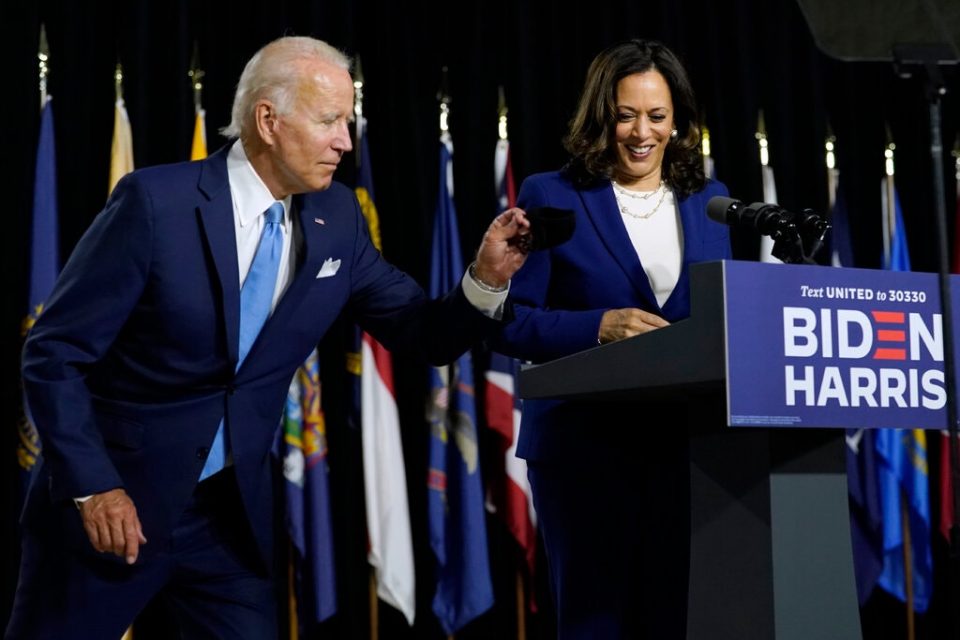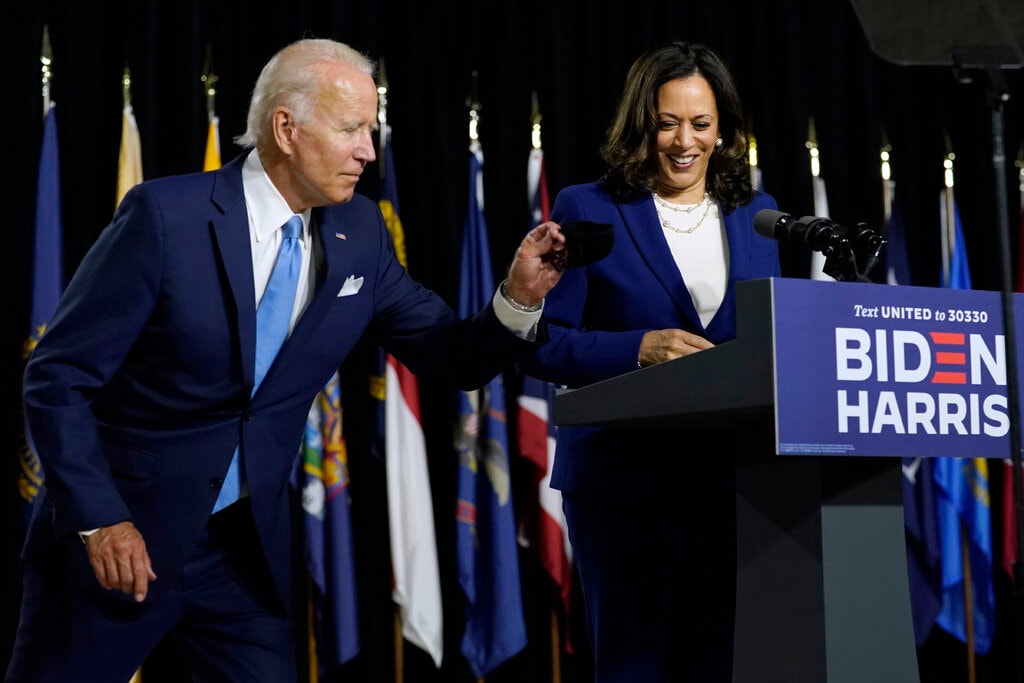Civility & Diplomacy Won’t Cut it with House and Senate Republicans
By C.C. Campbell-Rock
The national political debate raging across media platforms boils down to one question: How will President Joe R. Biden Jr. carry out his humanistic agenda if Republican gridlock continues?
If past is prologue there is good reason to be skeptical. Will Senate Majority Leader Mitchell McConnell (R-KY) and his Republican cohorts actually commit to bipartisanship during the incoming Biden-Harris Administration? Maya Angelou, the late, great Poet Laureate, warned us: When people show you who they are, believe them,
Republicans’ Influence
“For six out of Barack Obama’s eight years in the White House — after Democrats had lost control of Congress in the Tea Party wave of 2010 —McConnell blocked almost every White House initiative. His goal was to wreck the Obama presidency even at the expense of passing bills that would have been weighted towards Republican ends,” the Financial Times reported.
However, McConnell recently bragged about the bipartisan” Coronavirus Response and Relief Supplemental Appropriations Act of 2021, which Donald Trump signed into law. The legislation was negotiated by the Problem Solvers Caucus. They are an equally divided bipartisan group in the United States House of Representatives that includes 50 members. Eleven Senators worked in partnership with the Caucus, including five Democrats, five Republicans and one Independent.
McConnell was not on that negotiating team nor did he take part in earlier negotiations between Representative Nancy Pelosi, Speaker of the House, and Trump’s Treasury Secretary Steve Mnuchin. Looking back, his refusal to be a part of the negotiation signaled the unholy alliance between McConnell and Trump. This political aberration had the effect of melding the Senate and the Executive Branch of the federal government into one questionable entity.

In that abnormal state, McConnell allowed Trump to make decisions and push legislation detrimental to the balance of power in the federal government. McConnell stacked the federal courts. He ramrodded the U.S. Supreme Court nominations of Brett Kavanaugh and Amy Coney Barrett through the Senate. And he refused to allow witnesses, testimony, and documents into the record during Donald Trump Sr.’s Impeachment Trial. Ultimately, he refused to convict Trump. McConnell also refused to allow a vote on 300 bills sent to him by the House of Representatives.
McConnell’s past actions gives little assurance that he will fully support bipartisan legislation when Biden and Harris take the reins of the federal government.
Most news analysts say control of the Senate in the 117th Congress rests in the hands of Georgia voters. Their January 5 ballots will determine if McConnell remains the Senate Majority Leader. If the two Democrats win over the Republican incumbents, the Senate will be split 50-50 between Democrats and Republicans and Vice-President Elect Kamala Harris will cast deciding votes on legislation.
Some former government officials say that if anyone can secure bipartisan cooperation, it’s President-Elect Biden, who served alongside McConnell in the U.S. Senate for 36 years. Biden was harshly criticized by then-presidential candidate Kamala Harris for working with segregationists in Congress.
Hypothetically, if the Georgia democrats lose their run-offs, McConnell will stay in power. Then there is a strong possibility that he will continue his 11 years of obstructionism.

Biden and Harris are moderate Democrats. But their agendas are progressive. Republicans want the Biden Administration to move center right on the political spectrum.
Faced with GOP obstructionism, what can Biden do to move his bold agendas forward?
One Republican says there are some areas that Democrats and Republicans can agree. Things like an infrastructure bill, addressing the opioid crisis and even a police reform bill are possible. “There is stuff in the middle, if Biden is willing to do deals in the middle. And that means being willing to strike agreements that progressive members don’t love, and maybe have them vote no, and be at peace with that,” Rohit Kumar, the co-leader of PWC’s Washington National Tax Services and a former top aide to McConnell told the AP.
The Biden-Harris Administration plans are more extensive than the Republicans are willing to support. Biden wants to
- contain the coronavirus
- strengthen the Affordable Care Act
- provide financial relief to cities, states, small businesses, families and individuals
- reverse Trump’s permanent tax cuts for the wealthy
- forgive some student loan debt
- make some public college free
- address climate change
- police reform
- criminal justice reform
- immigration reform
- pass an infrastructure bill
- create green jobs
- increase the minimum wage
- rebuild relationships with foreign governments
- make a path to citizenship for Dreamers
- remove travel bans from some Muslim countries
- and protect LGBTQ rights.
Biden has also promised to take major legislative action on gun control, though prior legislative efforts have failed multiple times.
In a VOX article, writer David Roberts suggests Biden “run a blitz,” to succeed in hyperpolarized politics.
“Joe Biden should do everything at once,” via executive orders, and ignore Republicans’ criticism and attacks, Roberts advises.
“Biden is already working on an array of executive actions to achieve some of his bolder priorities …without having to navigate congressional gridlock,” the Associated Press reported.
“In that event, Biden’s agenda items stand a better chance of at least getting a vote. If Republicans maintain control, Senate Majority Leader Mitch McConnell might not bring the new president’s priorities to the floor.”
Biden is clearly anticipating gridlock. After all, he was Vice President during the Obama Administration and experienced Republicans refusal to legislate President Obama’s agendas.
Progressive Dems on Capitol Hill are concerned that Biden and the Democratic leadership in the House and Senate will be too quick to make deals with Republicans.
Rep. Alexandria Ocasio-Cortez (D., N.Y.) tweeted in December: “One major difference between GOP and Dems is that GOP leverage their right flank to gain policy concessions and generate enthusiasm, while Dems lock their left flank in the basement bc they think that will make Republicans be nicer to them.”
Ocasio-Cortez’s criticism may prove prescient. Indeed, the latest negotiations for COVID-19 relief provided far less than the Democrats asked for in the HEROES ACT buried on McConnell’s desk since May 2020. Instead of the $3 trillion Dems wanted, the bill offered a paltry $900 billion, half of the additional $600 per week in unemployment benefits, $600 for individuals instead of the $2000 Dems requested and no financial relief for cities and states.
Biden will have to work with McConnell and the Republicans regardless of the outcome of the Georgia elections.
However, the Biden Administration must be aware of Republicans who are carrying forth Trump’s attempt to overthrown the election. At press time, 140 House Republicans and 11 Republican Senators are on the record saying they oppose certification of the Electoral College votes. None of those joining the coup have put forth any evidence of voter fraud. They are also suggesting an Election Commission ( an interloper) that will investigate election results for 10 days after the election to determine if widespread voter fraud exists.
Pundits and Dems say obstructionist Republicans won’t prevent the electoral vote certification, their attempt will fail, just as Trump’s 59 lawsuits failed, but the political theater of it all will embolden Trump supporters. Trump, himself, has called for his voters to converge on Washington, D.C., on January 6, the day Congress is set to certify the votes. The city’s police are bracing for any violence Trump’s followers may cause.
Trump is also planning a rally on January 20, when Biden, Harris, and Cabinet members take the oath of office.
Some Democrats on Capitol Hill say that even as Biden takes office, American democracy is still hanging in the balance.
A small ray of hope for Democrats rests in the fact that elections to the U.S. Senate will be held on November 8, 2022, and 34 of the 100 seats are up for regular election. Special elections may be held to fill vacancies that occur in the 117th Congress. Additionally, six of the current GOP senators, who will face voters in the 2022 election, represent swing states: Florida, Georgia, North Carolina, Ohio, Pennsylvania, and Wisconsin.
If Democrats and voting rights activists can stop partisan gerrymandering during redistricting this year, they may be able to end minority rule in legislatures. However, the best strategy for ending Republican dominance and obstructionism on Capitol Hill and in state houses is to mobilize voting bloc coalitions of various ethnic groups. There is strength in numbers.

